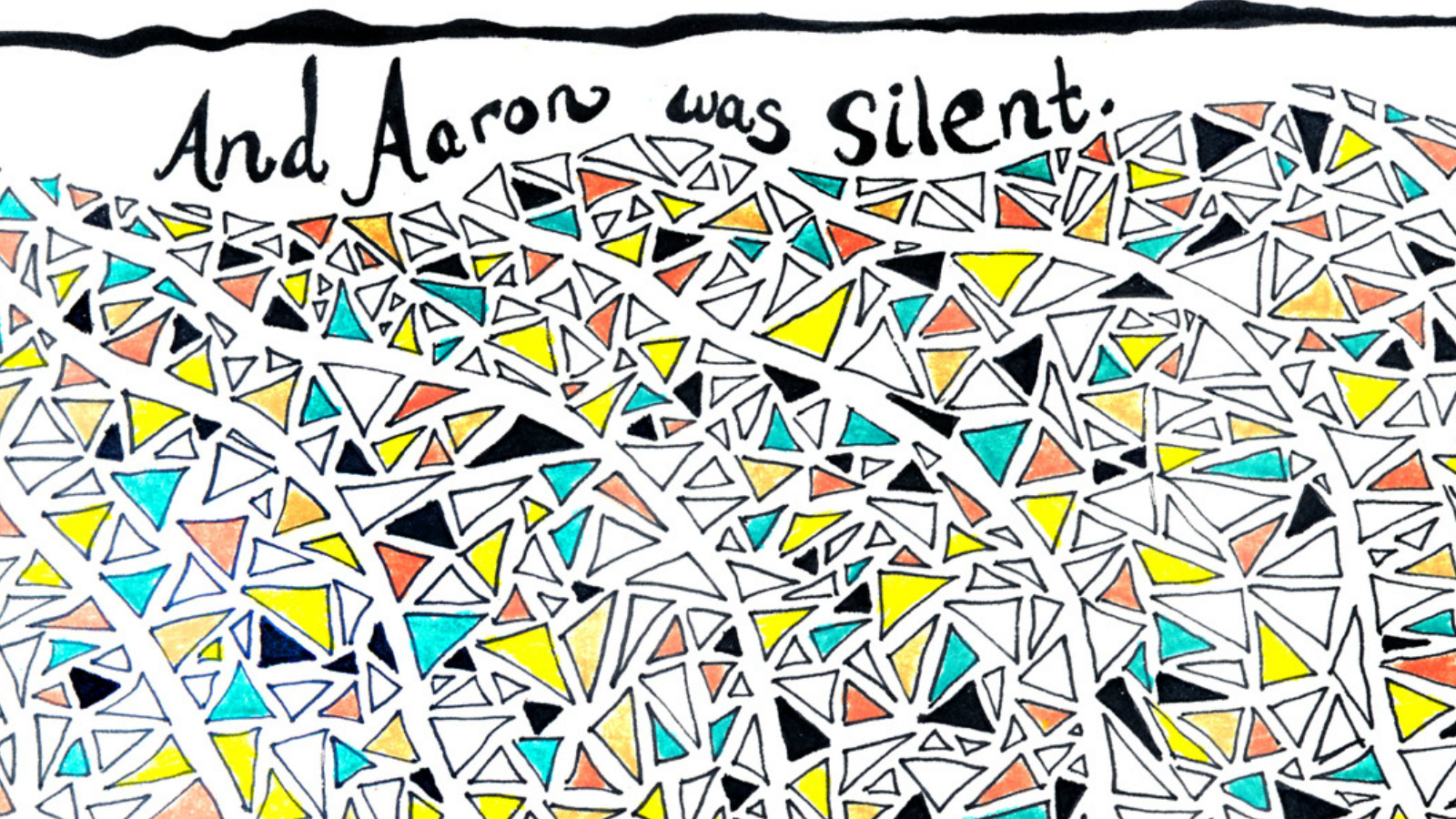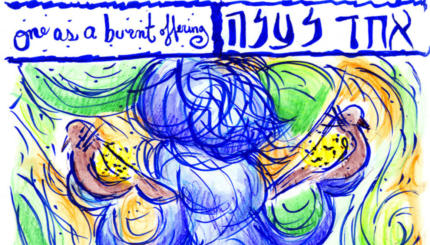Commentary on Parashat Shmini, Leviticus 9:1-11:47
What is silence? The absence of noise? The ability to say nothing? Or is it the ignorance of the noise around us?
In Parashat Shmini, we learn of the silence that Aaron embraced after the death of his two sons, who had brought a “foreign fire” before God. The Torah then tells us: “Then Moses said to Aaron, ‘This is what the LORD meant when He said: Through those near to Me I show Myself holy, And gain glory before all the people.’ And Aaron was silent.”
The loss of children, the pain and suffering, and the eventual silence. What could be said in the face of such tragedy? What could be done?
The Ibn Ezra, a Spanish commentator from the 11th century, shares with us his view of what Aaron was thinking: “This is what God has told me. God has already told me that He will manifest His holiness through those who are near Him — even if they must suffer for it.” Aaron was silent, according to the Ibn Ezra, because he understood that this was the way it had to be.
With your help, My Jewish Learning can provide endless opportunities for learning, connection and discovery.
The Sforno, an Italian commentator from the 15th, suggests that “Aaron consoled himself after having been told that the death of his sons represented a sanctification of the name of the Lord.” Aaron’s silence was thus an act of self-consolation.
Commentary after commentary follows a similar line — silence equals consolation, acceptance, and continuation. Life simply must go on.
The Ramban, the 12th century Spanish scholar, is seemingly alone in suggesting an emotional reason for Aaron’s silence: “And the reason that Aaron was silent was that he was crying loudly and fell silent.”
In the Ramban’s reading, Aaron cries, screams and shouts. And only once he has done all this is he silent. Once he lets the tears flow, once he releases his anger, he is able to fall silent.
Here is the Aaron of action, the Aaron that we know about, the Aaron who will be known as the “lover of peace” — and more importantly the “chaser of peace.” Imagine the conversation in Aaron’s mind: “God, what have you done to me? What good is it to me that You have taken my children away from me, despite my service to You? I will shout at You, I will scream at You, I will demand of You! Where is the justice? And now that I have done that, I will mourn by myself. I will fall silent, perhaps distance myself from You, perhaps grow closer to You, perhaps continue to serve You, or pass the mantle onto my children. But I will be silent.”
Aaron was so close to God that he could go on in silence. But what about us?
Rabbi Joseph Soloveitchik, the 20th century talmudist and philosopher, in his opening chapter of a book called Kol Dodi Dofek, which deals with the pain of the Holocaust and the eventual establishment of the State of Israel, writes regarding a person who experiences tragedy: “The halakhah [Jewish law] teaches us that an afflicted person commits a criminal act if he allows his pain to go for naught and to remain without meaning or purpose.”
Are we allowed to sit silently in the face of tragedy? Soloveitchik says no. To do so would be a tragedy in and of itself.
When we discuss the Holocaust, we say “Never again.” This statement does not turn back the clock and allow us to say that the world spoke up. Rather, history will always deem the world to have remained silent in the face of that tragedy — a criminal act, according to Soloveitchik.
But what about the tragedies of today? Too often we stay silent, thinking someone else will take action. Jewish tradition teaches us that each of us must stand up and take action. We must follow Aaron’s lead — we must scream, shout, protest and allow our emotions to drive us to action. Only then can we fall silent.
Read this Torah portion, Leviticus 9:1-11:47 on Sefaria
Sign up for our “Guide to Torah Study” email series and we’ll guide you through everything you need to know, from explanations of the major texts to commentaries to learning methods and more.
Subscribe to A Daily Dose of Talmud: Daf Yomi for Everyone — every day, you’ll receive an email that offers an insight from each page of the current tractate of the Talmud. Join us!
About the Author: Alon Meltzer is the rabbi of Or Chadash Synagogue and the director of programs at Shalom in Sydney, Australia. He was ordained at Yeshiva University and is studying for his doctorate at LaTrobe University. He is a community builder, staunch orthodox feminist, Daf Yomi Instagrammer and father to three incredible young women.



